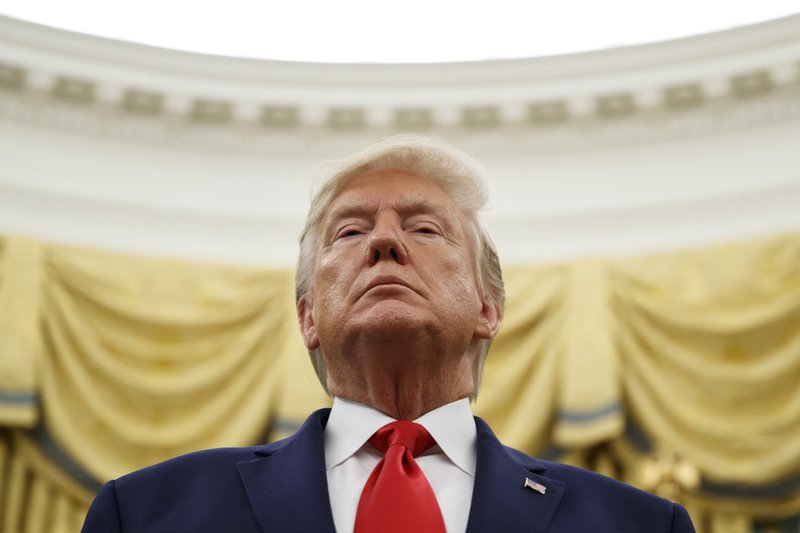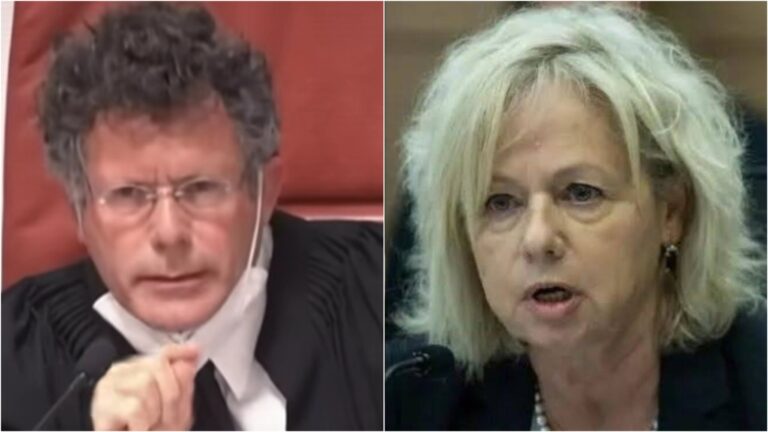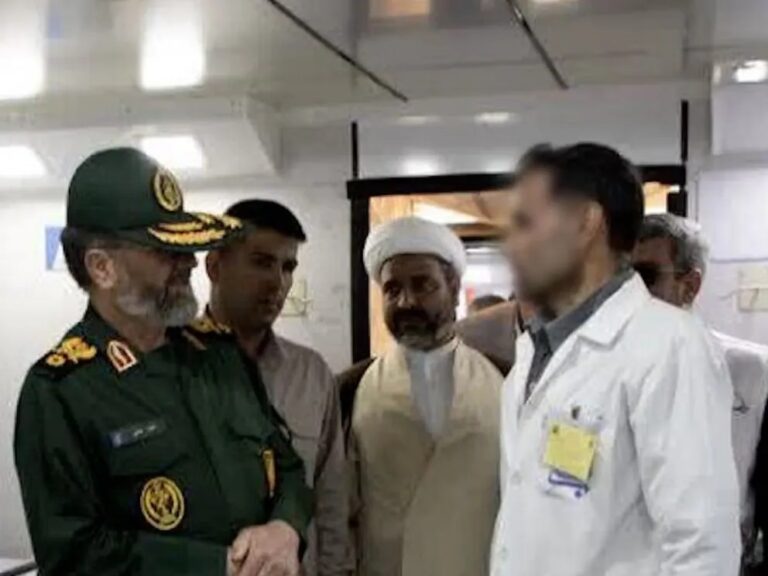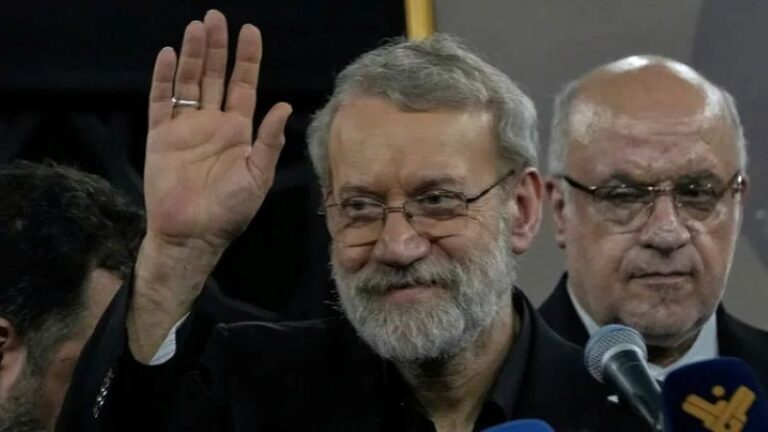The words from one president to another, somewhat casual in tone, were not casual at all in meaning: “I would like you to do us a favor, though.”
Those words have now prompted deployment of the ultimate political weapon, an impeachment process enshrined in the Constitution as a means other than the ballot to remove a president from office.
When history writes the story, the seemingly innocent request from President Donald Trump to his Ukrainian counterpart will show their infamous July 25 phone call had a lot behind it, at least implicitly.
It had the weight of U.S. military power behind it. The dangling jewel of a White House meeting if things turned out right. And the prospect that Ukraine’s very future could be in the balance, as a country aspiring to join the West while feeling threatened by an aggressive Russia to the east.
Dancing to the edge of legality and maybe over it, Trump asked the Ukrainians to investigate his own political rivals at home and interference in the 2016 U.S. election.
That was the favor.
And what in return?
Quid pro quo means something for something.
That Latin phrase is at the core of today’s mountain of subpoenas, the pile of insider text messages that weren’t supposed to come out, the tug of war between Congress and the White House over willing and reluctant witnesses and the blizzard of aggrieved Trump tweets.
This, as Democrats move closer to a Senate impeachment trial that would be only the third in the nation’s history.
A familiar pattern is emerging. Trump, like Richard Nixon and Bill Clinton before him, is striking back at his accusers, though Trump does it with more bite, force and relentless volume. He also has near-lockstep support from his party, as Clinton did, and Nixon, until he didn’t and resigned in disgrace.
Among underlings, loyalties fracture. Conspiratorial thinking, even paranoia, creeps in. Who is next to talk, stonewall, turn, quit? Who will break and when? Who won’t break? Nixon was undone in part by Deep Throat. Trump thinks the Deep State is out to get him.
Trump, ever defiant, never contrite, insists he did nothing wrong, that his communication with the leader of a corruption-plagued country was appropriate and that the impeachment effort is a politically orchestrated hit by Democrats to nail him on Ukraine when they couldn’t get him on Russia.
How we got here is something of a play in three acts, involving machinations by Ukrainians, Trump and Democrats in turn, with the fourth act to be written.
___
THE BLACK EARTH
Ukraine is a land of dark, fertile soil where corruption and assorted American conspiracy theories have taken root along with the wheat and cabbage. Trump’s preoccupation with Joe Biden and his son Hunter flourished there.
A true if flawed democracy on Russia’s doorstep, Ukraine in 2014 ushered out a pro-Russian leader who tolerated corruption and replaced him with an anti-Russian leader who tolerated somewhat less corruption.
Then in 2019 came Volodymyr Zelenskiy . The comedian and political novice proposed to govern with a straight face and an eye to making Ukraine more like its European neighbors to the west while ending the war against Russian-backed forces in the east.
He was counting on unflagging support from the U.S. Instead he got Trump, with his faith in Russia’s good intentions and fixation on conspiracy theories against Democrats.
For Trump, the Bidens may have looked like easy prey. While Joe Biden was Barack Obama’s vice president and counseling Ukraine’s government on fighting corruption, the younger Biden was hired by Burisma, a Ukrainian natural gas company whose owner was feeling some heat.
By putting Hunter Biden on the board in spring 2014, Burisma’s owner probably wanted to show the new Western-leaning Ukrainian government that powerful people in the West had his back.
Although no evidence of anything illegal emerged, it looked bad and caused some to question whether Burisma was buying influence with the Obama administration. In early 2016, Joe Biden pushed Ukraine to fire the prosecutor charged with investigating Burisma, except that he had stopped investigating.
What the U.S. and its European allies wanted was a Ukrainian prosecutor more committed to combating corruption, not less.
Trump also seemingly bought into a long-discredited conspiracy theory that connects Ukraine, not Russia, to the 2016 political interference and the hacking of the Democratic National Committee.
U.S. intelligence agencies attributed the hack to Russia. So did Robert Mueller, who as special counsel charged 12 Russian military intelligence officers. Even a former Trump homeland security adviser has urged the president to stop pushing the false story.
The day Zelenskiy was inaugurated, May 20, saw the abrupt departure of the American ambassador, a longtime diplomat who Trump apparently believed was undermining his efforts to push Ukraine to investigate the Bidens.
Trump’s motive in recalling Marie Yovanovitch — he called her “bad news” — is now part of the impeachment inquiry. In her testimony in October, she described a “concerted campaign” against her based on “unfounded and false claims by people with clearly questionable motives.”
On that list, she suggested, was Trump’s personal attorney Rudy Giuliani, whose associates “may well have believed that their personal financial ambitions were stumped by our anti-corruption policy in Ukraine.”
Two Soviet-born Florida businessmen who worked with Giuliani and made large donations to Republicans, including a Trump-allied PAC, leveraged these political contacts to pursue a business deal involving the Ukrainian state gas company. They were arrested in October, charged with making illegal campaign donations.
___
THE CALL & THE WHISTLE
July 25: Trump and Zelenskiy speak for a half hour, 9:03 a.m.-9:33 a.m. Eastern time.
Trump congratulates the new leader: “The way you came from behind, somebody who wasn’t given much of a chance, and you ended up winning easily. It’s a fantastic achievement.”
Zelenskiy then turns a Trump phrase, “we wanted to drain the swamp here in our country,” and flatters the president some more. Then they get down to business and Trump asks for his favor.
“There’s a lot of talk about Biden’s son,” Trump says. He goes on to say that Joe Biden “went around bragging” about derailing the Ukrainian corruption prosecutor.
“So if you can look into it,” Trump goes on. “It sounds horrible to me.”
Zelenskiy is noncommittal in the phone call, which ends with more mutual flattery.
“Perfect” phone call, Trump said, defensively and repeatedly afterward.
But among the dozen or more political appointees and civil servants who listened in — as part of standard White House practice — and among the insiders who heard about it after, it was immediately clear that something troubling had happened.
A U.S. president had asked a foreign leader to investigate U.S. citizens in a matter that stood to benefit his re-election chances.
And that was before another element of this episode was widely known, even throughout the administration: Trump had ordered military aid , already approved by Congress, to be held up, and without explanation.
White House lawyers assigned to the National Security Council were among those who were alarmed, and they broke with common practice to have a rough transcript of the call stored on a computer server used for only the most sensitive information.
There’s no recording. The White House stopped taping presidential calls in the 1970s, after Watergate investigators used tapes made by Nixon.
Instead, information specialists speak into a device that renders words into text and from that a rough transcript emerges. That transcript is circulated to those who were also listening to the call and taking real time notes to ensure accuracy.
And on this call was U.S. Lt. Col. Alexander Vindman, whose family fled Ukraine when he was 3. He was so concerned that he rushed to one of the NSC lawyers to tell them of a serious discrepancy.
“I realized that if Ukraine pursued an investigation into the Bidens and Burisma, it would likely be interpreted as a partisan play which would undoubtedly result in Ukraine losing the bipartisan support it has thus far maintained,” Vindman later wrote in prepared remarks to House impeachment investigators. “This would all undermine U.S. national security.”
Another person, a CIA officer who was not on the call but learned of it from multiple administration officials, shared Vindman’s concerns. The officer compiled a detailed letter outlining suspected transgressions by the president, and on Aug. 12 sent it to the inspector general for the intelligence community.
Trump has since called for the whistleblower to be identified, as have several of his fellow Republicans.
“In the course of my official duties,” the whistleblower wrote , “I have received information from multiple U.S. Government officials that the president of the United States is using the power of his office to solicit interference from a foreign country in the 2020 U.S. election.”
The letter was also addressed to the heads of the House and Senate intelligence committees. Alarms sounded inside the CIA general counsel’s office. A White House lawyer got involved. So did the Justice Department.
It took weeks for those concerns to make it to Congress and the public, but they set in motion a process that has only happened four times in the nation’s history.
___
TOWARD IMPEACHMENT
Trump entered office with his campaign facing investigation by his very own Justice Department, which examined whether his aides coordinated with Russia to sway the election. The investigation by Mueller into Russia’s attack on the 2016 race won plenty of convictions and exposed suspect behavior by the president.
When it came to Trump himself, Mueller said Justice Department guidelines prohibited charging a president with a crime. But he notably also said he did not exonerate Trump, effectively kicking any decision over to Congress to use its powers of impeachment.
House Speaker Nancy Pelosi, D-Calif., at one point said it was “not worth it” to impeach Trump, and any fire lit by Mueller’s investigation quickly seemed to expire.
The whistleblower letter, however, gave unexpected life to the notion that Congress would investigate whether Trump should be removed from office. A group of moderate Democrats voiced support for the inquiry, and Pelosi eventually agreed, and now is leading the push.
“The actions of the Trump presidency revealed dishonorable facts of betrayal of his oath of office and betrayal of our national security and betrayal of the integrity of our elections,” she said on Sept. 24.
“In the darkest days of the American revolution, Thomas Paine wrote, ‘the times have found us,’” Pelosi said. “The times have found us today.”
Trump has long struggled to find a derisive nickname that sticks for his Democratic foe in the House. Oddly, he has shown flashes of respect and admiration for her.
He’s now come up with “Nervous Nancy.”
Yet if anyone’s nervous now, it seems to be him.
___
Trump has railed against the process, now declaring this inquiry as history’s greatest witch hunt, apparently a successor to the Mueller investigation which he derided similarly.
House Democrats leading the inquiry have been conducting it akin to a grand jury looking into a crime, interviewing witnesses behind closed doors, building a case that could become public before Christmas.
Morning after morning, witnesses stream into a basement room inside the Capitol, where they defy White House directives not to testify and dish dirt on the president who employed them — or at least used to.
None has come to praise him.
There was the brash hotelier who once withdrew from a fundraiser for candidate Trump only to later donate $1 million to his inaugural committee. There was the ambassador who spent more than 30 years in public service only to be ordered back to Washington “on the next plane.”
There was the foreign service officer and trusted adviser inside the State Department who ended a decades-long career in part over frustration with the Trump administration’s Ukraine policy.
There was Vindman, an Army officer who served in Iraq and appeared at the Capitol in military blue with medals. There was, as well, the State Department envoy who appeared with text messages outlining the clear contours of a quid pro quo.
The president’s top adviser for Russian and European affairs — a man who told colleagues of his “sinking feeling” when he learned Trump was pressing for dirt on the Bidens — appeared just one day after news broke that he was leaving his position at the White House. He said the two events were not related.
Peeling back layers, House lawmakers moved through the diplomats, career subject-matter experts and bureaucrats on the periphery of the president’s life before ultimately reaching out to the more intimate advisers, snagging some, still trying for others.
The tale the witnesses told differed at the margins but largely converged on this point: There was something off, even alarming, about the White House dealings with Ukraine.
They voiced plenty of concern, too, about the shadow foreign policy effort, conducted against the judgment of many career officials, to secure a commitment from the new Ukrainian leader to investigate the man who the president thought might be his Democratic challenger.
Even Gordon Sondland, the Trump appointee as envoy to the European Union, expressed after-the-fact misgivings about following directives from the president.
Perhaps the most damaging and evocative testimony came from the diplomat who had warned in a text message with Sondland that it would be “crazy” to withhold military aid in exchange for “help with a political campaign.”
Bill Taylor is a West Point graduate, Vietnam veteran and career civil servant who took the job as chief of mission in Kyiv, Ukraine’s capital, against his wife’s judgment and made detailed notes when the actions of his peers ran afoul of his own judgment.
Taylor described explicitly how Trump held back military aid for Ukraine unless the country agreed to investigate Democrats.
He recounted “ultimately alarming circumstances” that threatened to erode the U.S. relationship with Ukraine and laid out an “irregular” policy channel led not by a seasoned diplomat but by Giuliani, the former New York City mayor and Trump’s current personal lawyer.
And he described being told how “everything” Ukraine wanted, including sought-after military aid, hinged on that country’s leader committing to the investigations that Trump sought.
The hearings yielded a trove of text messages among diplomats, surfacing concern and confusion about the backchannel effort led by Giuliani to secure Ukraine’s cooperation.
“As I said on the phone, I think it’s crazy to withhold security assistance for help with a political campaign,” wrote Taylor.
“Bill, I believe you are incorrect about President Trump’s intentions,” Sondland responded “The President has been crystal clear no quid pro quo’s of any kind.”
But if that response was meant as reassurance, it wasn’t exactly genuine.
Sondland told Congress he said there was no quid pro quo because that’s simply what the president himself had told him over the phone, in the hours between the time Taylor texted him and when he texted Taylor back.
Behind the scenes, Trump’s then-national security adviser, John Bolton, is said to have described Giuliani as “a hand grenade who is going to blow everybody up,” according to the testimony of one witness.
He likened the shadow Ukraine campaign to a “drug deal” being cooked up by other top officials.
None of this has undermined Trump with his party.
The testimony has produced few cracks in the Republican wall of support. No Republican voted Thursday to formalize the inquiry. Yet there is more to come.
___
ACT 4
The coming week could bring the testimony of Bolton, who as national security adviser was at odds with the president inside the White House and on his way out. Trump said he fired him, Bolton said he offered to quit.
But it’s not clear that will happen. Bolton’s attorney signaled his client wouldn’t appear without a subpoena.
Meanwhile, Bolton’s former deputy, Charles Kupperman, is waiting for a judge to resolve whether he can be forced to testify since he was a close adviser to Trump.
Public hearings may start in mid-November, possibly followed by the drafting of articles of impeachment and a House vote on them by the end of year. The Senate’s impeachment trial, if there is one, could be pushed into 2020.
Previous impeachment drives sprang from diverse causes.
For Andrew Johnson in 1868, it was from his racial animus and resistance to black civil rights after the Civil War. For Nixon, it flowed from misdeeds rooted in his obsession with re-election and his cover-up of them. For Clinton, it was about his lies over women.
For Trump, it’s about making a deal.
(AP)












2 Responses
The Democrats announced a policy of resistance, which includes impeachment (regardless of any valid charges, and asking a foreign government to investigate corruption is hardly an impeachable offense), as soon as Trump was elected. The real crime for which he is being impeached is lack of political correctness, and we should be nervous since by definition, being frum is a violation of political correctness. We may not like Trump, but his enemies are our enemies.
Intellectually lazy comment. The offensive act isn’t just asking a foreign government to investigate corruption. It’s asking a foreign government to dig up dirt on fellow Americans for no reason other than to win an election, and at the expense of our national interests. To those who say this doesn’t compromise U.S interests, it certainly does if you know about the ongoing Russian conflict and Russia’s continued efforts to destabilize Europe. Moreover, imagine if he also pushed them to start an investigation against his political opponent? America’s policy is to protect its citizens, not to lobby nations to prosecute them. This should all really shock any American’s sensibilities. It’s clear proof that he is not America First, so much as he is Trump first. I also disagree with your last sentence: Since I am a frum Jew first and foremost, I am not lockstep with any one party. You can have friends on both sides o the aisle. Even if many of them go way too far, the dems have given all of us some things you seem to be taking for granted. Glad Yeshiva World posted this article and hope others read it.